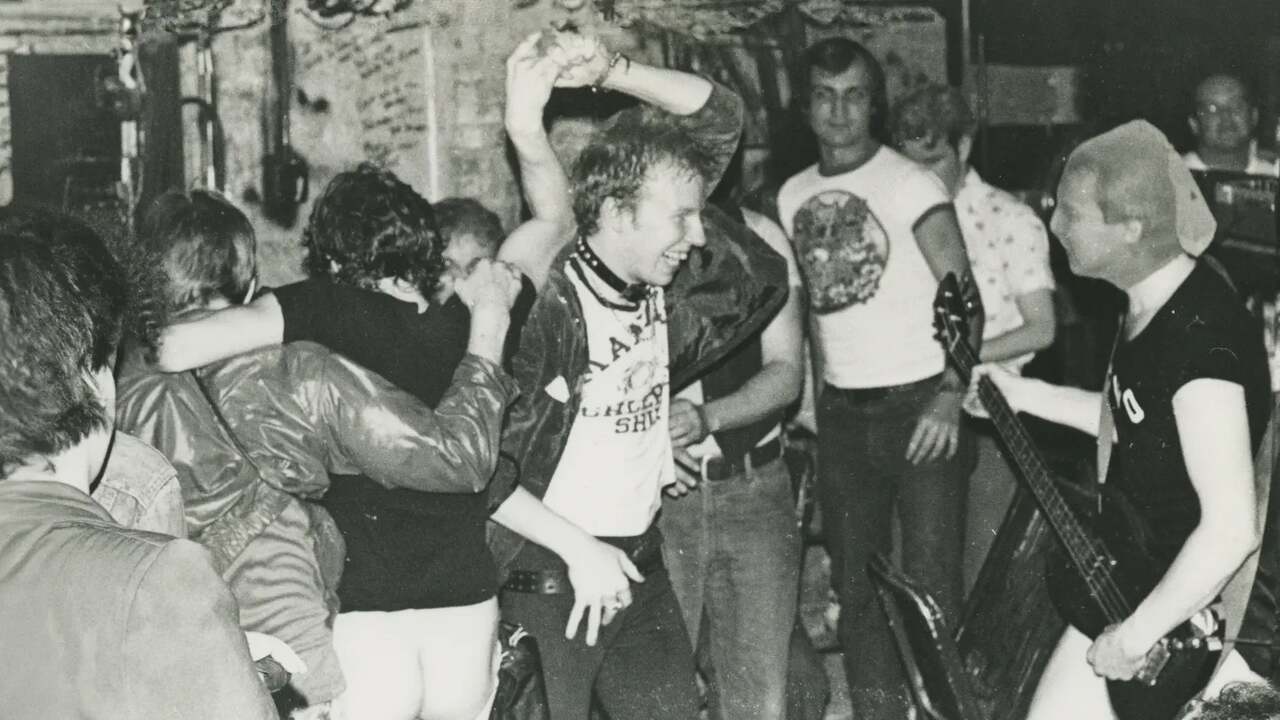
A lot of the current generation might not know the band Devo because it belongs to the era of the 80s, but for those of you who know, you are sure to have created a vivid picture of it in your mind- the band in jumpsuits and plastic red cone hats in conical shape. For many people, the visual appearance of the band is what they remember vividly than the music they created. This is what director Chris Smith wishes to change via this documentary on Devo. He feels that the music was worth being remembered, but somehow the appearance took center stage in this rock band.
The documentary opens with Mark Mothersbaugh explaining how the band got its name. He distinctly remembers his teacher handing him over a pamphlet from 1933, which had a devil named “devolution” written on his chest, who is seen pointing to a set of stairs that contain the various human sins. And then we are transported back to Kent State University. A weird conversation about potatoes got them talking, and as they say, the rest is history. They even participated in the protest in Vietnam at the University. In one such protest, the National Guard shot at the protesters, which led to 30-odd students being shot and 4 getting killed. They hoped things would get better and pick up momentum. Rather, things went oddly silent. Stuck in Kent with anger and a hope to see a change, Gerald Casale started discussing things with Bob Lewis. Mark, on the other hand, realized that protesting got them no results. So he wanted to try out something new and better. And thus was the idea of “devolution” started- a literary and an art movement. Funnily, music came later to this trio. Instead, initially, all they discussed was art. All in all, Devo became a critique of consumerism and mechanized labor. By 1973, they started venturing into music. Their music videos were a satire on politics. What the musicians do emphasize is that, beyond the big costumes, there were messages that they wished to impart via pop culture as their medium to the people, who didn’t quite get them. We are also shown what happened to each of the members after their careers in the band. Casale became a music video director. Mothersbaugh turned into a composer for TV and films. Their song “Whip It,” released in 1980, became their biggest hit, and we are shown the full story behind it.
Now coming to the technicalities, “Devo” is a well-made music documentary with a few loopholes. It’s a bit difficult to understand its journey at first. The art movement and their venture into music, and their subsequent turn into what happened post their band career, is slightly difficult to understand. They have used archival footage, but again, some of them need a greater and better explanation, which isn’t given to us.
The band members coming forward to tell us about their stories is the main highlight of the documentary. At one point, it feels that the documentary was made to clear the air around the band, its image, and its true purpose. There could have been moments when they should have analyzed critically why such a thing happened. Instead, it gets repetitive to prove a point that they were misunderstood. It ultimately is a classic case of what could have been great but misses a few spots here and there.
Final Score- [7/10]
Reviewed by - Neerja Choudhuri
Follow @NeerjaCH on Twitter
Publisher at Midgard Times
Get all latest content delivered to your email a few times a month.
Bringing Pop Culture News from Every Realm, Get All the Latest Movie, TV News, Reviews & Trailers
Got Any questions? Drop an email to [email protected]